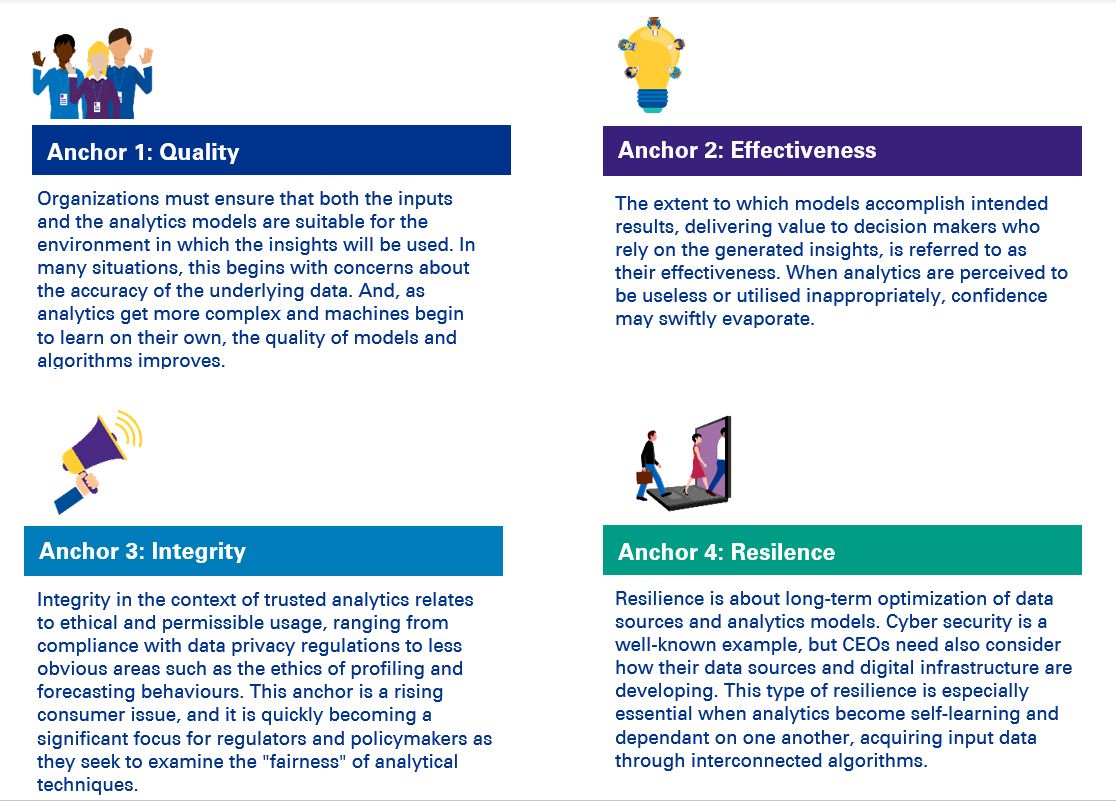In this modern era, one of the major concerns faced by many CEOs around the world is the quality of data they are basing decisions on. This highlights that the core foundation of any successful data and analytics lies on the trust in the data. Many important decisions that influence us as individuals, organizations, and communities are based on results generated from data and analytics. With so much reliance on the results of data and analytics, questions are being raised about the level of trust we have in the data input and analytical engine used to churn out those insights.
How do we know a result is correct or that automated decisions are correct? What does ’right’ really mean to the business and why does it matter? Who should be primarily responsible to evaluate the accuracy? As analytics become more popular, trust issues will continue to surface – not only across most industries and organizations, but also for regulators and consumers.
At KPMG, the approach that we adopt for data and analytics, artificial intelligence, machine learning, and other new technologies is centered on trust. Our data professionals know trust reinforce all data and analytics. In this blog, we seek to explore and evolve key trust concepts critical to organizations and consumers as they integrate data and analytics into their daily decision-making.
If we want to take advantage of the massive market opportunities being created by new technologies such as data and analytics, artificial intelligence and intelligent automation, we need to start by trusting them. The goal is to help businesses make more confident decisions. We do this in part through the organization’s governance structure, as well as transparency and controls that are integrated at various processes of the organization. But to trust the insights generated from any analytics, we need to solidify the 4 key anchors: quality, effectiveness, integrity and resilience.

Conclusion
In summary, trusted analytics is a valuable business advantage in this digital era. And the path to trust is built with a deliberate, strategic approach to governance that goes beyond the conventional focus on technology and risk. IT is no longer a catch-all for all things technological. Instead, it is time for the company’s executives to take accountability of its data, analytics and AI, ensuring quality, effectiveness, integrity, and resilience.
To that end, CEOs and functional leaders need to manage the quality of its data sources and analytical models. Such approach necessitates standards and controls to address cultural, ethical, and other emerging issues in the management of modern data technology across the organization.


